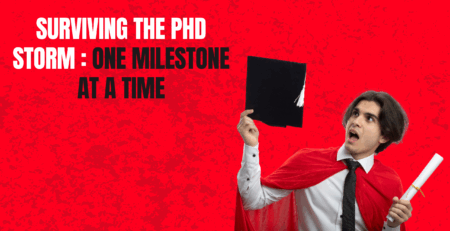19Jan

As a PhD scholar, one of the most challenging moments in the academic journey when your PhD manuscript rejected. Whether it’s your thesis, research paper, or any academic article, a PhD manuscript rejection can feel discouraging. However, understanding why your PhD manuscript was rejected can help you refine your work and increase the chances of success in the future.

One of the primary reasons a manuscript gets rejected that it lacks originality. PhD research all about contributing something new to the field, and if your work doesn’t present a novel perspective or research finding, it may be deemed as redundant.
How to Avoid This:
A well-structured manuscript key to ensuring clarity and flow in your argument. If your manuscript lacks proper organization, it can confuse readers and reviewers, resulting in rejection.
How to Avoid This:
The literature review sets the foundation for your research. If your manuscript does not engage deeply with existing literature or fails to identify key studies, it may appear underdeveloped.
How to Avoid This:
If your methodology weak, flawed, or lacks rigor, reviewers may question the validity of your research. This can lead to immediate rejection, especially if your results cannot be trusted.
How to Avoid This:
Even the most groundbreaking research can be rejected if it’s poorly written. Grammar and language issues can make your work appear unprofessional, hindering your chances of publication.
How to Avoid This:
Most journals and academic institutions have strict submission guidelines. Ignoring or failing to follow these guidelines can lead to immediate rejection.
How to Avoid This:
A weak or ambiguous conclusion can leave your manuscript lacking impact. If your conclusion doesn’t tie together your findings or show the significance of your work, reviewers may find it insufficient.
How to Avoid This:
If your manuscript was previously rejected or returned with feedback, failing to address the comments or revisions can lead to repeated rejections.
How to Avoid This:
Rejection of your PhD manuscript is tough, but it doesn’t mean the end of your academic journey. A PhD manuscript rejected for common pitfalls can be refined. By understanding why your PhD manuscript was rejected, you can improve your chances of success. Ensure that your work is original, well-structured, methodologically sound, and free of errors.
If you need support with your manuscript, Kenfra Research can help. From plagiarism checking to topic selection and thesis development, our services are designed to ensure your research is of the highest quality. Don’t let rejection discourage you; use it as a learning opportunity to fine-tune your work and continue progressing in your academic career.

Writing a research methodology for your dissertation in 2025 is a crucial step in ensuring that your research is... read more
If a Ph.D. scholar was arrested for motivating and recruiting youth for terror outfits in Jammu and Kashmir's Kulgam or... read more

Embarking on a PhD journey is both exciting and challenging. For first-year PhD students and those preparing... read more

Pursuing a PhD is like sailing into uncharted waters. It’s intellectually stimulating but emotionally and mentally demanding. With years... read more

Writing a structured literature review is one of the most important milestones in academic research, especially for graduate students and... read more

Every successful research project begins with one foundational truth: clean, organized data leads to trustworthy outcomes. Whether you’re working on... read more
Simulating Success: Mastering MATLAB Simulink for Powerful PhD Research Kenfra Research, your PhD success partner, equips you with the knowledge... read more

Writing a literature review is a crucial step in academic research. It serves as the foundation for your research... read more

Tamil Nadu’s Best PhD Assistance Company - Kenfra Research: Helping PhD Scholars Across India Achieve Their Academic Dreams read more
WhatsApp us
Leave a Reply